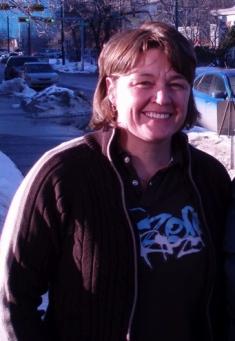The Calgary Police Service wants the queer community to know that hate-motivated crimes will be taken seriously and queer victims will be treated with respect during an investigation.
That was the message coming from the Sexuality and Gender Diversity Chief’s Advisory Board — a liaison between the queer community and the police — at a community meeting in Calgary on March 26.
The purpose of the event was also to raise awareness about violence in the queer community, including how to report incidents of domestic violence and gaybashing.
“We have educated officers, and we have some that need further education,” says Constable Lynn MacDonald. “The one thing that we want to try to get out of this tonight is to break the silence about violence, and secondly, for you to understand that you do have a connection with the police service.”
MacDonald, a lesbian Diversity Resources Officer who is co-chair of the advisory board, says there’s an inherent mistrust of police among the queer community and a fear of being outed when reporting violent crimes.
This mistrust isn’t unique to Calgary, but in December 2002 it was escalated when the police raided a Calgary bathhouse and charged several of its patrons and staff with being found-in, or keeping “a common bawdy house.” The community was outraged.
The Calgary Gay & Lesbian Community/Police Liaison Committee, as it was called then, was not consulted prior to the raid. Stephen Lock, a long-time activist in Calgary and co-founder of the liaison committee, says at the time that he believed the bathhouse was raided because “it was a gay sexual environment.”
But since then, the advisory board has been working to mend the relationship between the queer community and the police service. In the past couple of years, it’s improved dramatically, says MacDonald, adding that for the first time, the board has a strategic plan to facilitate communication between the two.
According to its annual report, released last week, the board has significantly increased friendly police presence at queer-related events — a major part of its strategy. In 2009, for example, MacDonald and several board members attended five community events, including the Pride parade, where they led the crowd in a rousing rendition of “YMCA.” Last year, the board also printed and distributed 10,000 copies of posters condemning homophobia and gaybashing.
“I know that after the bathhouse raid, there was a lot of tension between the gay community [and the police service],” says Calvin Campbell, a queer volunteer with the advisory board. “So it’s nice to see the community embracing the police service and vice versa. It was something that you didn’t see before.”
Three years ago, Campbell was gaybashed while walking home with two friends from a bar in Calgary.
Campbell was able to escape without suffering major injuries. But when he called the police to report the crime, not much was done, he says.
“It wasn’t handled so great,” says Campbell. “We were asked if we could identify the attackers, and I said ‘I don’t know, I’m still kind of in shock.’ And they said ‘Well if you can’t identify them, there’s not much you can do,’ and unfortunately that’s just the way most big cities are.”
Shortly after the attack, Campbell joined the advisory board to ensure that cases like his are handled better in the future. He says he feels “much safer” today than he did three years ago and he’d feel more comfortable reporting a crime now.
MacDonald also says the relationship is improving.
“Can I stand here and say that there’s no homophobic people on our service?” she says. “That would be ridiculous of me to say. Like any career, or any profession, we have people that have their own personal opinions and biases, but for us it’s about educating those people and bringing to light to them that you may have your personal opinion, but the bottom line is you’re paid to do a job, and you’re paid to do that job equally for everybody within the City of Calgary.”
“There’s a thousand of me on our service,” she adds. “It’s just a matter of getting people to notice that they’re there.”

 Why you can trust Xtra
Why you can trust Xtra


